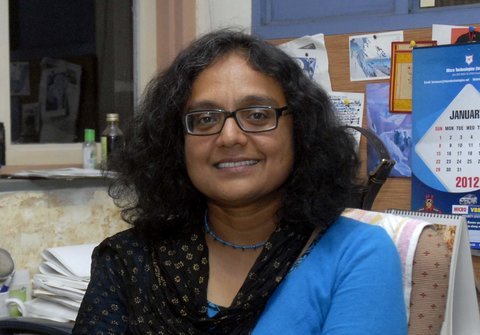On May 13, the only two Indian journalists in Pakistan, Snehesh Alex Philip of the Press Trust of India and Meena Menon of The Hindu, were told by the country’s Ministry of Information that their visas would not be renewed and that they would have to leave Pakistan in a week.
The ministry provided no reason for its decision, but Pakistan has expelled foreign journalists in the past, including Declan Walsh of The New York Times, who has since been based in London.
India and Pakistan had reached an agreement in the late 1970s to allow each country to post two journalists in the other. Currently, there are no Pakistani journalists in India.
The two Indian journalists had been in Pakistan since August. Their predecessors had spent more than six years each in Islamabad but left Pakistan after being denied visa extensions in July.
India Ink spoke with Ms. Menon, who is now in Mumbai, about her time as a foreign correspondent in Islamabad, Pakistan’s capital. Earlier this week, she wrote an article in The Hindu about her parting thoughts on Pakistan.
Also, there was the other issue of dealing with the Tehrik-e-Taliban Pakistan, the militant outfit. The army has been under pressure on that front as well. They are also under severe Western, especially American, pressure to put an end to all the terrorist safe havens in the country. All these have made the army react severely to situations, in a way to assert its importance and relevance.
Frankly, he didn’t say anything in my interview that was unheard of before. He just said people would vote for independence, if there was a referendum in Baluchistan. It was hypothetical and his view.
But there are several logistical nightmares. First of all, we were given single-entry-visit visas, which means we are stuck there and cannot return home when we want to, unless they choose to let us go and give us the required papers.
The visas they grant us are valid only for three months, which means we have to constantly finish paperwork in order to keep our visa status valid. These visas are also city-specific, which means we are bound to the confines of Islamabad. The bilateral agreement between India and Pakistan says that we should be allowed visas to at least three cities. A lot of the stories are happening outside the dry political city, and one cannot cover it.
I was denied a visa to visit Taxila, which is a World Heritage site; even here there is suspicion about why I wanted to visit the place. They suspect Indian journalists to be RAW [Research and Analysis Wing] agents, and especially women are looked at as honey traps, which is hilarious.
During my last two days in the country, I was constantly followed by the representatives of the establishment, including inside the money changer’s bureau and a cake shop. On the last day, when I was taking the taxi to the airport, the driver told me that those who were following me had asked him to be cautious as I was an Indian and I was leaving the country.
They had asked the earlier taxi driver, who was most helpful to me in finding a replacement key to my suitcase which had broken, to overcharge me because I was Indian. They stood outside my house and questioned the tempo driver who was taking the furniture I had sold at the last minute. Even my cook who had worked with The Hindu for nearly two decades was not spared.
“Don’t get put off by those people,” my friendly taxi driver, a graduate who had no option but to ply a taxi, advised me and asked me to “Come back and write about the difference between the ordinary people and the establishment.”
(This interview was condensed and lightly edited.)
Published in: The New York Times
Published on: March 23, 2014
Link: https://india.blogs.nytimes.com/2014/05/23/a-conversation-with-meena-menon-the-hindus-former-correspondent-in-pakistan/


